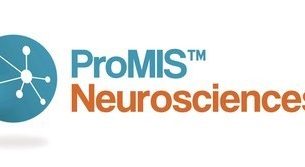Coffee cafes are spearheading the fair trade movement to improve working conditions for coffee harvesters in developing countries…
Located on a busy avenue in the Lower East Side of Manhattan, Rapture Cafe & Books stands out among the delis, convenience stores and restaurants that surround it. Its window displays signs praising World Fair Trade Day-a day which is celebrated each year on the second Saturday of May.
“Kids need fair trade,” reads a sign at the Rapture, with an additional paragraph explaining how fair trade makes it possible for children in developing countries to go to school by paying their parents fairly.
As Fair Trade Day 2007, which will be observed on May 12, approaches, Rapture customers fill the cafe to drink what has been certified as an ethically produced beverage. A day before the Fair Trade Day, the spot will play host to a book signing by Jacqueline DeCarlo, author of the book “Fair Trade: A Beginner’s Guide.”
Fair trade is a casually organized social movement aimed at improving working conditions and wages for agricultural workers in developing countries, whose products are mostly exported to countries with more advanced economies.
Initiated in Europe during the 1960s, the movement brought lots of controversy over its efficiency. Although many commercial products are a part of fair trade arrangements, coffee remains at the forefront of the movement.
Although the Rapture Cafe appears to be the lone fair trade outpost in its neighborhood, many shops across the United States and Europe say they sell only fair trade goods.
In Brooklyn, Vox Pop offers its customers premium-priced strong coffees that it says are ethically produced. The Vox Pop, which is “Latin shorthand for voice of the people,” is both a coffee house and a publishing company.
Sanders Hick, the 36-year-old founder of the store, says fair trade is about more than serving coffee. His place functions as a community center, where the goal is to “make people more active in their community.”
“We want to be more than just fair trade coffee," Hick said. "We are about a revolution of peace and justice.”
Products designated as fair trade goods tend to be slightly more expensive than their undesignated counterparts.
The reason behind the gap between different goods coming from Latin America or Africa is that producers of fair trade goods are paid much better. Also, fair trade arrangements make sure producers work with reasonable schedules nullifying labor abuses prevalent in poor countries.
A little devotion to the moralistic cause and higher product quality offsets that price gap, a committed fair trade coffee drinker says.
“It’s a strong coffee, I love it,” said Tom Miller, a regular customer of the Vox Pop. “I’m also happy to support the business.”
Miller, a professor of anthropology at Rutgers University in New Jersey, said he liked knowing where his money is going when he buys coffees.
“It’s good to know you’re on the right side,” Miller said.
Various labeling initiatives and not-for profits are active in the fair trade goods market, auditing the production processes of goods of different brands and deciding whether or not they are fit to be designated “Fair Trade.”
TransFair USA, is one of the North American labeling initiatives and is a part of the Fairtrade Labeling Organizations International, an association of initiatives from various countries. Both organizations say they strictly audit the production processes of their clients and make sure the producers at the end of the production line get fair payments.
But payment is not the only criterion, the organizations say. To be designated as “Fair Trade,” companies should also enhance democratic decision making and free association among producers. They should also promote practices both socially and environmentally sustainable.
A major criticism of fair trade is that it artificially increases the price of raw materials that encourage excessive production of agricultural goods. The surplus nullifies the value of goods produced by the majority of the workers who are not protected by fair trade agreements.
Brink Lindsey, an advocate of free trade, wrote in 2004 that raw coffee prices saw historic lows because of a 15 percent oversupply, which was mainly caused by fair trade regulations.
In the 2004 article, titled "Grounds for complaint," Lindsey wrote, “Those who advocate prop-up pricing schemes such as ‘fair trade’ may have the best of intentions, but they will probably encourage the less efficient producers to keep at it, maintaining the supply.”
Social responsibility matched with moral considerations play major role in consumer’s choices when the issue is fair trade, even though customers want to get the maximum for their money, said Hick, the founder of the Vox Pop.
His customer Miller, who knows Hick and most of others who come in and out during the day by name, said he liked Vox Pop not because of its mission but because of the taste of its coffee.
“If it was not fair trade coffee,” Miller said, before taking a sip from his medium coffee, “I would still be coming here.”


